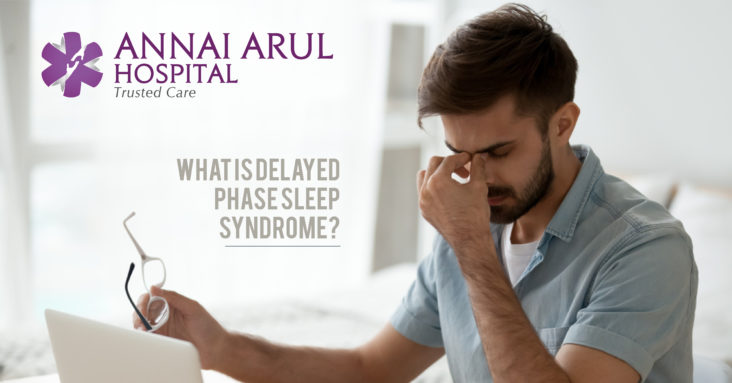People who stay-up late in the night may be described as night owls but those with delayed phase sleep syndrome do not stay late wilfully and their case is quite different.
Some people show a tendency to fall asleep in a delayed manner at least by several hours compared to the normal sleep time. That is why if the sleep onset between 1 a.m to 3 a.m then the person may be suffering from delayed sleep phase syndrome. In rare and extreme cases a person may only fall asleep closer to the sunrise.
The delayed sleep phase syndrome subsequently affects the waking up time too, with the person waking up at least several hours later than a normal wake-up time.
The Symptoms
There are two main symptoms for the condition they are insomnia and sleepiness. Though contradictory in nature both symptoms occur in one person and this is due to sleep timing.
Late sleepers may experience insomnia if they attempt to go to bed earlier than their natural desire for sleep onset. They will lie in the bed awake, tossing and turning and this will lead to anxiety, frustration, anger etc. which makes insomnia worse. Similarly the same person may find it difficult to wake up in the morning, this leads to morning sleepiness and the sleepiness decreases by mid-day. Again as evening rolls on the night owls will feel more awake than others and the cycle will be repeated.
Unfortunately these night owls usually do not get to sleep and wake-up as they like the result is insomnia and sleepiness. The pressure from the society including parents, spouses and colleagues will be very disruptive finally affecting the educational or professional performance.
Symptoms associated with sleep deprivation:
- Morning sleepiness
- Fatigue
- Lack of concentration
- Lack of memory
- Mood changes
- Errors and accidents
- Body pain and illness
- Hallucinations & paranoia
What causes the condition?
Delayed phase sleep syndrome may be mainly attributed to a genetic predisposition towards developing the condition. Much research is being done to throw more light on the condition. Beyond genetic reasons environment factors like light affecting the circadian rhythm may also be taken into consideration. The presence of more light may be causing the problem but the fact is that the same light can help in treating the condition too.
Treatment
There are many effective ways to keep sleep timing under control and normal but everything requires a little extra effort on the part of the person suffering the condition. The following are some interventions to improve the condition:
Consistency: Sleeping and waking up at the same time even during weekends.
Catch the sunlight: Wake-up in the morning and step out in the sunlight, do anything including walking, reading a newspaper etc. with the sunlight on you.
Cut light at night: Avoid more light especially screen light at night just preceding bedtime, as it may delay sleep onset.
Cognitive Behaviour Therapy for Insomnia (CBTI): This is a programme where sleep consolidation, stimulus control, mindfulness and relaxation techniques are integrated to treat insomnia.
Melatonin: Melatonin is the hormone produced by the pineal gland in the brain and helps control circadian rhythm. A melatonin therapy can also help to fall asleep earlier.


